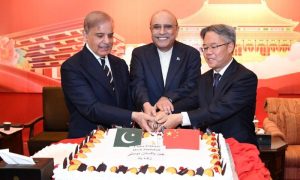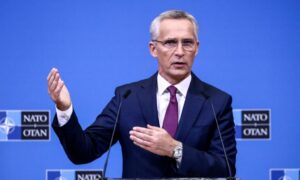ISLAMABAD: The World Bank is concerned that after the upcoming elections, powerful and organised vested interests may spur several potential reversals on crucial policy reforms, committed to multilateral lenders, posing ‘high’ macroeconomic risks in Pakistan.
The potential reversals include the rationalisation of electricity and gas subsidies, reduction of trade tariffs and improved property tax realisation.
“Stakeholder risks are high due to strong and organized vested interests, potentially advocating to reverse critical reforms, particularly trade tariff reforms, increases to property taxation and energy sector reforms,” said the Washington-based lending agency in an assessment of the recently approved $350 million loan under second Resilient Institutions for Sustainable Economy (Rise-II).
Despite these concerns, the bank expressed readiness to offer additional support in collaboration with the International Monetary Fund (IMF) under another medium-term loan programme to be signed by the newly elected government, subject to the successful progression of the ongoing reform measures, for more extensive and deeper reforms.
The bank highlighted the high political and governance risks associated with the upcoming elections, emphasizing that political pressures may undermine fiscal restraint or the commitment to the continued implementation of challenging reforms. Additionally, macroeconomic risks are deemed high, with reserve cover projected to be below one-and-half months of imports at the end of the stand-by arrangement (SBA). The bank stressed the need for additional external support following the completion of the SBA.
Furthermore, the World Bank identified additional macroeconomic risks arising from weak public finances, the banking sector’s heavy exposure to government borrowing, and restricted growth due to shortages of critical imports. It also pointed out that institutional capacity for implementation and sustainability is at risk due to the necessity for provincial-federal coordination and the frequent turnover of senior government officials in critical positions.
Looking ahead, the bank outlined the “broader and deeper reforms” that the country must undertake over the next couple of years under the new political dispensation. These reforms include reducing protectionist trade policies, eliminating distortive agricultural subsidies, and rationalizing federal government expenditures over devolved subject areas. The reform agenda also involves expanding the tax base, accelerating energy reforms, cutting red tape, and easing the business environment.
The World Bank warned that without such reforms, private external flows would be limited, import restrictions might be necessary to preserve foreign exchange reserves, and economic activity would be negatively impacted, leading to long-lasting economic scarring. The bank emphasized the importance of ongoing engagements to support reform in key areas, including GST and property taxation reform, energy reforms, and revenue and public finance investment projects.
Furthermore, the World Bank acknowledged broad support for critical fiscal management and revenue reforms across the political spectrum. The private sector also emphasized the importance of a harmonized tax jurisdiction, a single regulatory entity, and a competitive and stable trade policy.

























